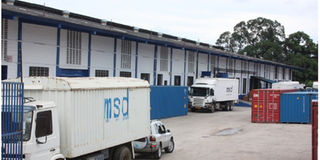Prime
MSD challenges drugs manufacturers to increase production, cut imports

What you need to know:
- The MSD director of ICT, Mr Leonard Shao, said the money used to import the medicine could support the local manufacturers.
Dar es Salaam. The Medical Stores Department (MSD) yesterday challenged manufacturers of drugs and medication to increase production to help cut imports.
The government’s autonomous department under the Ministry of Health, responsible for developing and managing the production, procurement, and distribution of approved medicines and medical supplies, spends Sh590 billion per year; 80 percent of it is paid for imports.
The MSD director of ICT, Mr Leonard Shao, said the money used to import the medicine could support the local manufacturers.
“Reducing the imports could help generate jobs for locals,” said Mr Shao, who was speaking during a meeting with the domestic pharmaceutical manufacturers.
The meeting was convened to hear the challenges local pharmaceutical producers face and chart the way for-ward.
The government chief pharmacist, Daudi Msasi, said the government’s target is to cut the imports of medicines and other medical supplies from the current 80 percent to 50 percent by 2030.
He said one of the ways of achieving the targets was to meet the local pharmaceutical producers, hear their challenges, and make the necessary reforms.
“As we speak, we have already asked MSD to stop importing medical water because it’s locally available. Our aim is to make sure as many medical supplies as possible are locally produced, and that’s why we are meeting today,” he said.
He said the government was trying to identify 12 other medical supplies that are locally available before banning their importation and procuring them from the local manufacturers.
“We know this is a tough business war because it will affect importers who were not competitive enough,” he said, citing an example of medical water, for which the importers have cut the price from Sh700 to Sh500 per unit after starting to use the locally produced ones.
He said the government has taken some fiscal measures to protect the local industries.
“Tax on packaging and raw materials was a big challenge, but the government is working on the issue and has already scrapped the tax on packaging materials. All that is to ensure the local investors produce competitive products,” he said.
The government also removed the inspection fee of between Sh8 million and Sh14.9 million and the registration fee of between Sh1.2 million and Sh4.9 million, according to the Tanzania Medicine and Medical Supplies Authority (TMDA’s) Emmanuel Alphonce.




